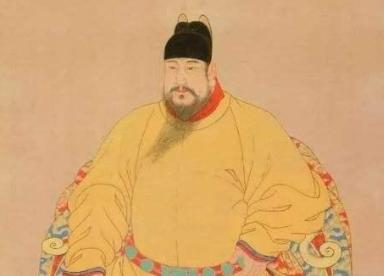Zhu Gaozi (朱高炽), also known as Emperor Akihito, was the eldest son of Emperor Ming Chengzu zhu Di and the fourth emperor of the Ming Dynasty. Although there were many strange things among the Emperors of the Ming Dynasty, Zhu Gaozi was not the same as them. He reigned for less than a year, but he can go down in history. Interested readers can follow the small editor to take a look.
Some people say that although Zhu Gaozi reigned for one year, he was the crown prince for a very long time, which can fully see Zhu Gaozi's rule.
But the prince and the emperor are not the same, although in such a long time can fully see Zhu Gaozi's character and for the world, but the supervision of the country is temporary after all, Zhu Gaozi as the prince for twenty years, but most of the time, the ruling is Zhu Di himself, so can not be regarded as only a period of supervision of the country, as his achievements.
However, objectively speaking, the experience of supervising the country is still very beneficial to Zhu Gaozi. In particular, he won the respect of his teachers, most of whom were Hanlin bachelors, and gained valuable practical administrative experience.

We say that Zhu Gaozi and Zhu Di are completely two emperors with different personalities, so the concept of natural governance is completely different, and there is no harm without comparison. In stark contrast to Zhu Gaozi's benevolent government, Zhu Di was decisive in killing and slashing, and from the perspective of successive dynasties, the probability of several pro-conquests basically occurred was very low.
In the eyes of the literati, most of them did not like emperors like Zhu Di very much, and they preferred to see emperors like Zhu Gaozi who practiced benevolent government.
Speaking of Hanlin bachelors, it is not ordinary, especially in the Ming Dynasty. We know that in Chinese history, it is generally heavy on literature and light on military force, although the importance of each period is slightly different, but the civilian subjects will generally have a high treatment.
Especially after the Abolition of the Chancellor System in the Ming Dynasty, the university scholar system with Hanlin as the main choice began to appear. The Hanlin Academy was not of high rank, but it was close to the center of power, equivalent to a central secretarial body, directly serving the emperor and also in charge of the affairs of the imperial examination.
Of course, the responsibility of the Hanlin Academy also includes the revision of books and the history of writing. Therefore, don't look at the official position of the Hanlin Academy, but the impact is very large.
Zhu Gaozi was heavy and calm in nature, had a good understanding of words and deeds, and liked to read. His elegance and benevolence were highly praised by the literati, and of course, if nothing was done, it was obviously not enough to rely on the literati touting them, after all, they would meet people's hearts over time. So let's look at what Zhu Gaozi did in his short reign.
First of all, Zhu Gaozi practiced recuperation and lightness. He abolished the emperor's expropriation of goods such as timber and gold and silver and replaced it with a system of fair purchases. It also exempts people affected by natural disasters from their land endowments, which is deeply loved by the common people.
Many of his reforms allowed the people to get full recuperation, and Daming entered a period of stable development.
Secondly, he began to rectify the chaos, releasing the pardon of the traitorous clan members during the Jianwen Emperor period and returning them home, and forgiving and returning the people who were distributed to the sect to congliang and returning them to Nissan. In fact, Emperor Jianwen's reign at that time also relied on the literati, and after the Battle of Jingnan, the literati were suppressed, especially those who supported Emperor Jianwen, and could not raise their heads at all. Zhu Gaozi changed all this and eliminated the resentment of those implicated in the Battle of Jingnan, which is extremely important, and it can be said that he has won the recognition of readers all over the world.
Finally, Zhu Gaozi admired Confucianism and praised loyalty and filial piety, and Confucianism was further developed during his reign, and he also established the Hongwenguan to talk about the history of the scriptures with Confucian courtiers all day long, which many emperors could not do.
In addition, Zhu Gaozi also made outstanding contributions to the imperial examination system. The imperial examination was the most critical passage for the ancient carp to jump the dragon gate, and Zhu Gaozi also knew the importance of the imperial examination, so in order to win over the talents of the whole country, he stipulated that the proportion of "south sixty and north forty" was stipulated.
Although many of Zhu Gaozi's policies were changed after the new emperor ascended the throne, many remained, such as the reform of the imperial examination system, which lasted until the Qing Dynasty.
Therefore, it is precisely because of these benevolent governments and his good relations with the literati that he reigned for only one year, but he gained the recognition of the british name and future generations throughout the ages.
Disclaimer: The above content originates from the Internet, the copyright belongs to the original author, if there is any infringement of your original copyright, please inform, we will delete the relevant content as soon as possible.